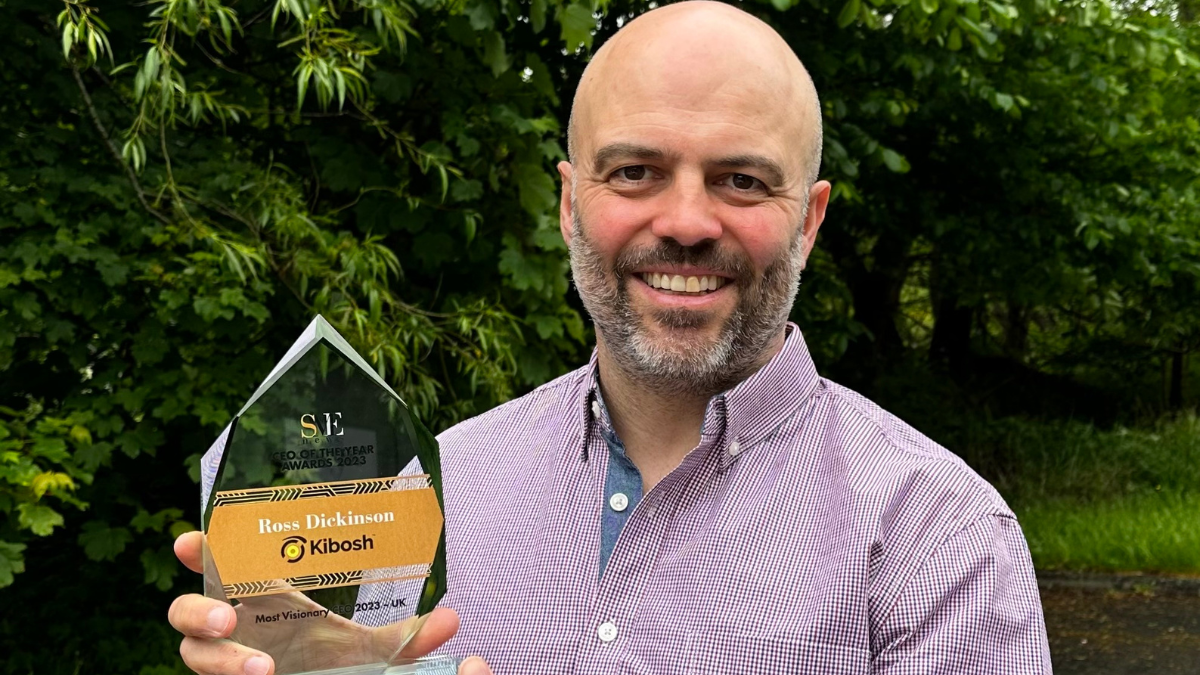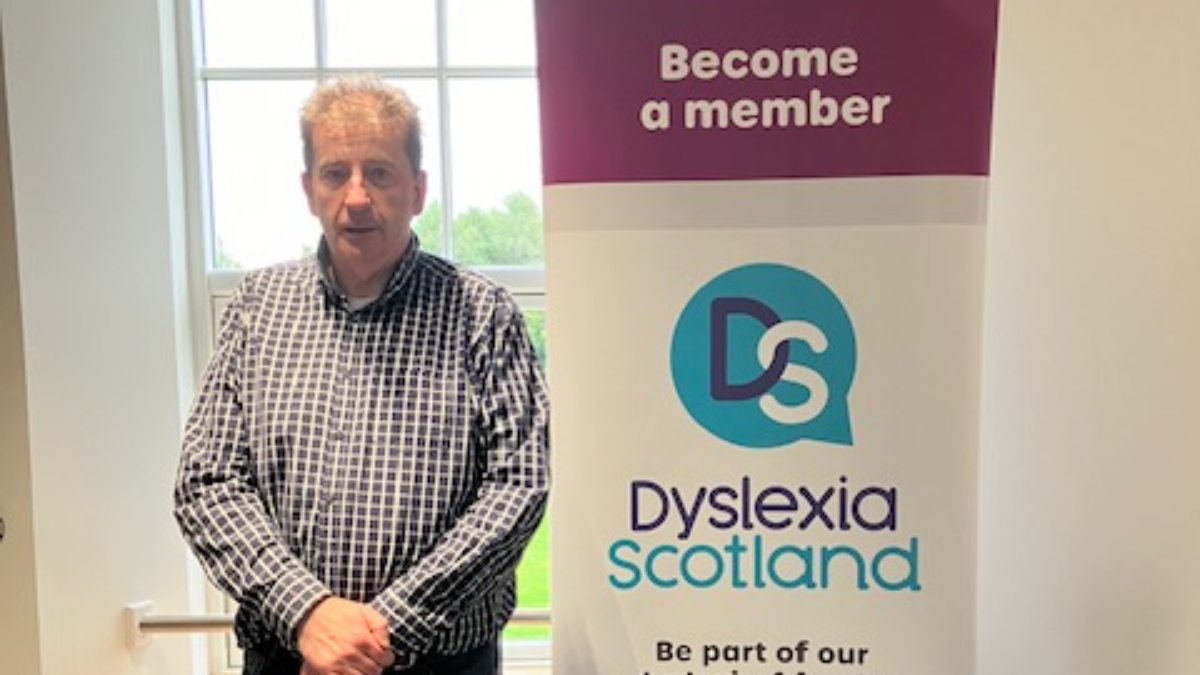Dyslexia, often seen as a barrier in traditional educational and corporate settings, turns into a unique advantage in the entrepreneurial world, writes Ross Duncan.

As a freelance volunteer writer for over 16 years, I’ve had the privilege of exploring the lives and journeys of entrepreneurs and business leaders across the globe. Over time, I’ve observed an intriguing and often overlooked connection between entrepreneurial minds and certain challenges—particularly spelling. Two words that frequently trip up many of these otherwise remarkable individuals are "entrepreneur" and "dyslexia." However, these spelling difficulties often reveal a much deeper story, one that highlights resilience, creativity, and success.
Dyslexia, a condition that affects reading, writing, and spelling, might seem like an obstacle in a world where communication and documentation are vital. Yet, paradoxically, many entrepreneurs not only overcome these challenges but thrive because of them. Dyslexia doesn’t hold them back; rather, it fuels their innovation and ambition.
One of the most insightful conversations I had was with Nigel Lockett, widely known as "the dyslexic professor." Lockett, the Emeritus Professor of Entrepreneurship at the University of Strathclyde, has successfully navigated both his academic career and dyslexia, showcasing how these two aspects can coexist and complement one another. He believes it’s no coincidence that a disproportionately high number of entrepreneurs have dyslexia. In his view, dyslexic entrepreneurs often create organizations that leverage their unique strengths, turning what many view as weaknesses into powerful tools for success.

Lockett once said, “I think we, the dyslexia activists, have it within our power to gather around this positive cause and help educators and employers realize the advantages of having confident, well-supported students and staff able to fully use their dyslexia superpowers!”
According to Lockett, the defining traits of dyslexic entrepreneurs are resilience, born from adversity, and empathy, shaped by personal struggles. These traits are the building blocks for their business acumen. While no one would wish hardship on anyone, it is often life’s challenges that shape these individuals and set them apart. When combined with big-picture thinking and the ability to envision diverse futures, dyslexics can develop a powerful formula for entrepreneurial success.
The connection between dyslexia and entrepreneurship is not just anecdotal; research supports it. Professor Julie Logan of Cass Business School in London conducted a study that found 20-40% of entrepreneurs have dyslexia. This is significantly higher than the estimated 10% of the general population that has dyslexia. Logan’s study also revealed some fascinating insights into how dyslexic entrepreneurs approach business.
One key finding is that dyslexic entrepreneurs tend to rely more on mentors and personal connections for guidance, rather than formal education. Instead of following the traditional route of seeking employment or higher education, many dyslexic individuals start their own businesses shortly after leaving school. This drive to create something of their own stems not only from their desire for independence but also from a need to find solutions that fit their way of thinking.
In the U.S., the statistics are even more striking. An estimated 35% of U.S. entrepreneurs are reported to have dyslexia, compared to 20% in the UK. This suggests a unique relationship between dyslexia and the entrepreneurial spirit, one that transcends borders and cultures.
Many dyslexic entrepreneurs could be considered quiet "radical revolutionists." They often think laterally, approaching problems in unconventional ways that lead to innovative solutions. The proverb "if it ain't broken, don't fix it" is frequently inverted in the minds of dyslexic entrepreneurs. They see challenges or potential issues where others might not and aren’t afraid to take bold steps to change the status quo.

One such revolutionary is Ross Dickinson, founder of Kibosh Ltd, based in the Scottish Borders. In 2007, Dickinson took a bold step into entrepreneurship, motivated by a desire to help people, save water, and prevent damage. His experience of leaving school early and dealing with dyslexia influenced his approach to business, allowing him to think outside the box. Dickinson's breakthrough came in the form of Kibosh, a company that manufactures innovative pipe repair clamps. The idea originated during a winter call-out to a flooded house where there was no water shut-off. Frustrated by the lack of a simple solution, Dickinson had his "eureka moment" and developed the clamp, which immediately reduces flooding and prevents further damage.
Dickinson’s story is a testament to how dyslexic entrepreneurs don’t just face their challenges head-on; they use them to fuel innovation, creating products and businesses that are often revolutionary in their fields.
In an article I hope will soon be published, I spoke to Karis Gill, an Edinburgh-based eco-entrepreneur and co-owner of Social Stories Club, who graduated from University of Edinburgh Business School and serves as an Ambassador for Young Enterprise Scotland. Like many other dyslexic entrepreneurs, she believes she is a creative, out-of-the-box thinker with a unique ability to visualize ideas clearly.

Gill became an Ambassador for Young Enterprise Scotland because she felt that entrepreneurship saved her as a child, and now she seeks to help others in similar situations. She emphasizes that entrepreneurship is not only about starting businesses; it’s about developing crucial soft skills. Gill says, "I think for students who are struggling, building confidence by staying creative and applying that creativity in practical ways is a huge booster. It encourages them to try new things, join more clubs, and believe in themselves because they can see that they are good at something."
Dyslexia, often seen as a barrier in traditional educational and corporate settings, turns into a unique advantage in the entrepreneurial world. The same traits that make reading and writing challenging—like lateral thinking, resilience, and creativity—are the very traits that many successful entrepreneurs rely on to build their empires. As dyslexic entrepreneurs continue to challenge the status quo, they prove that success is not about fitting into a mould, but about breaking it and creating a new one altogether. So, you could say that, the 'unique advantage' of dyslexia is developing an entrepreneurial mindset and collaborating with others to create new enterprises that can exploit new opportunities.
This article was written by Ross Duncan, a freelance writer dedicated to helping others better understand dyslexia.
